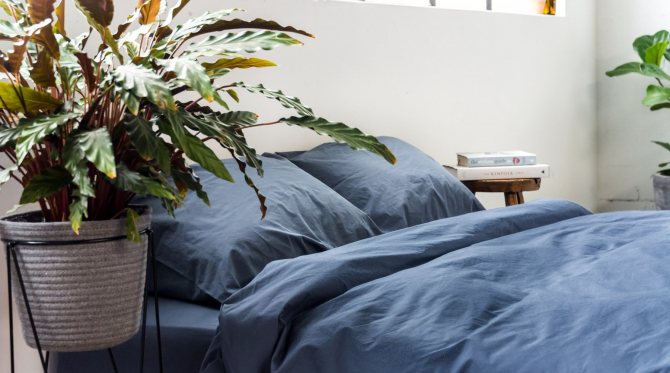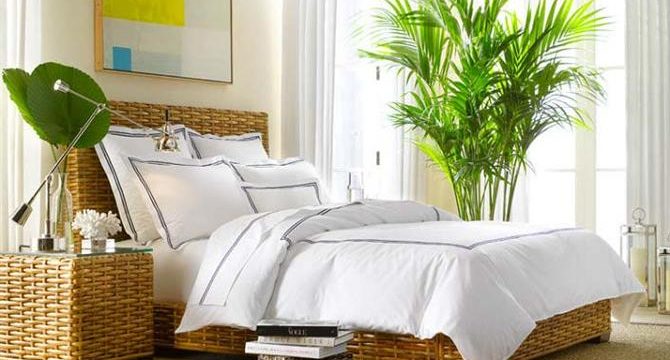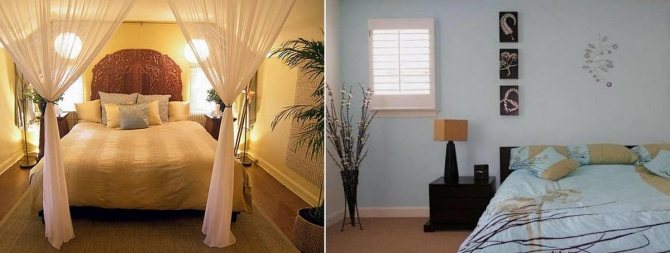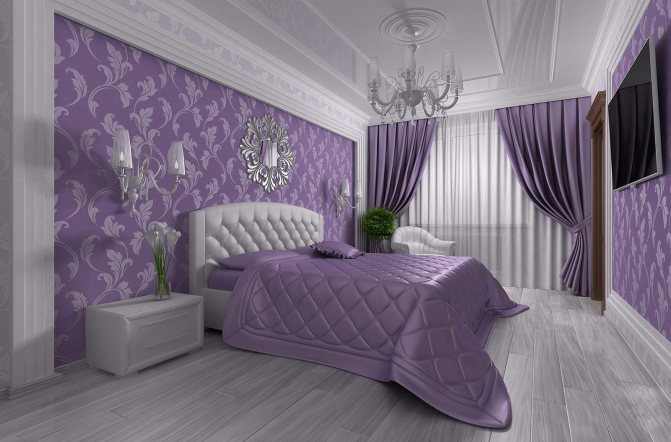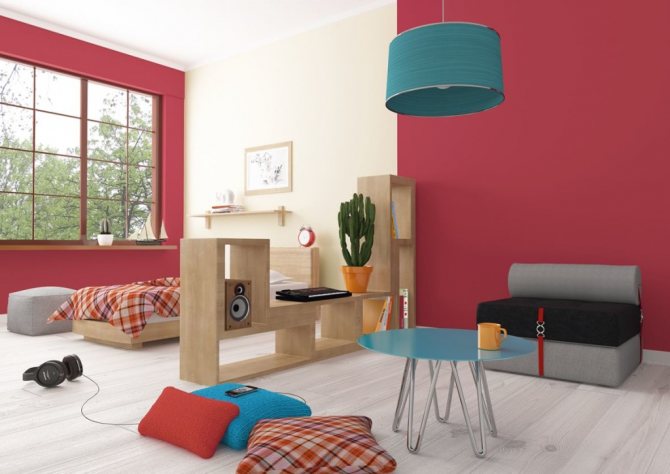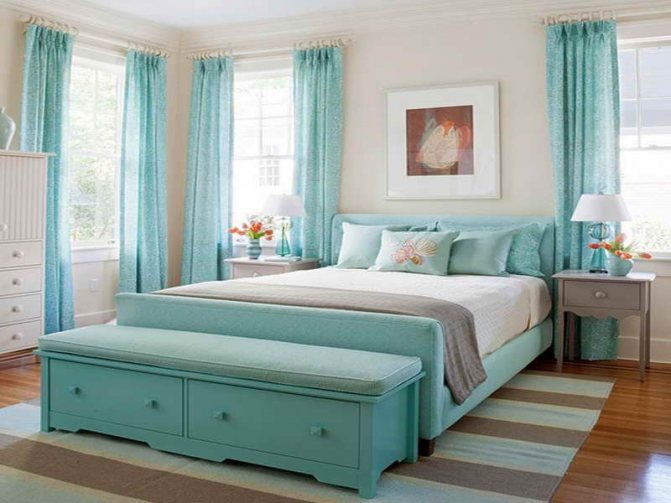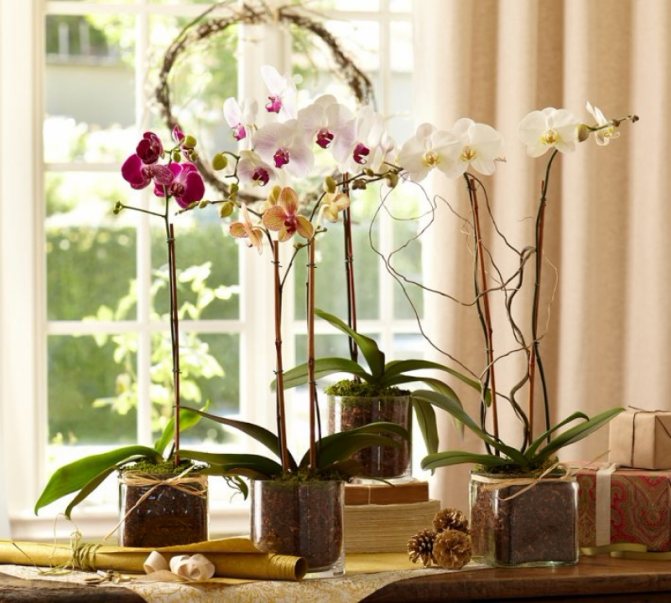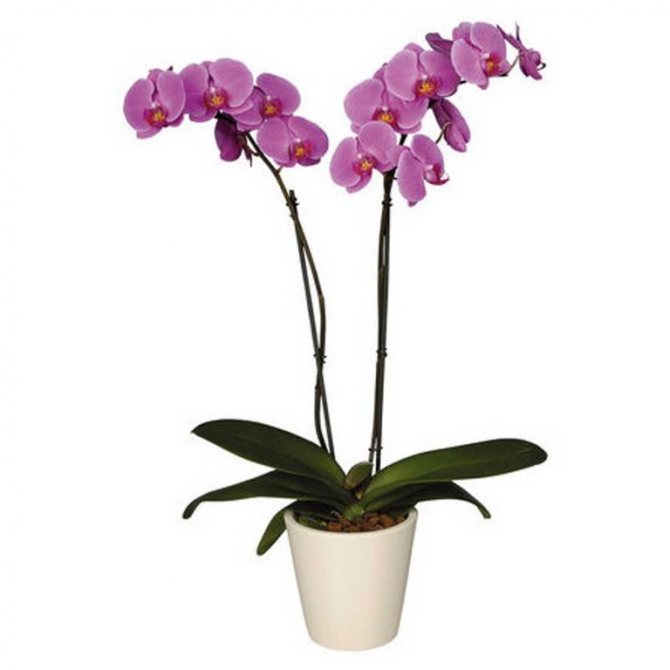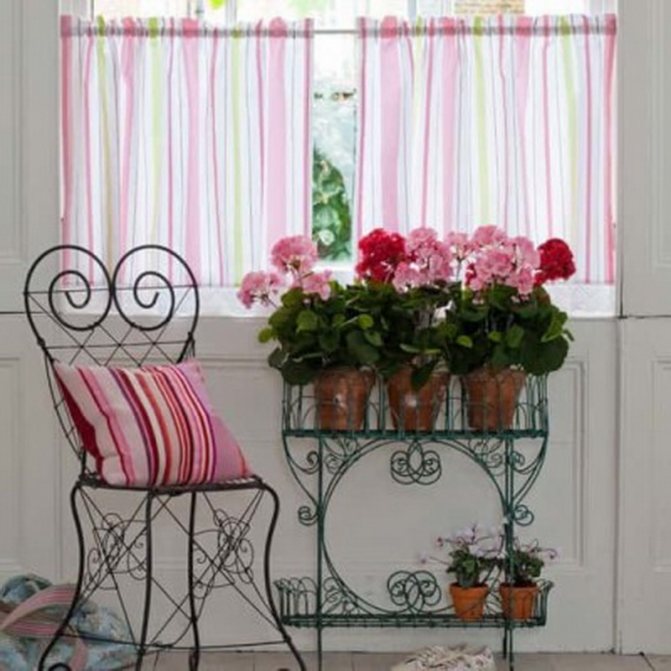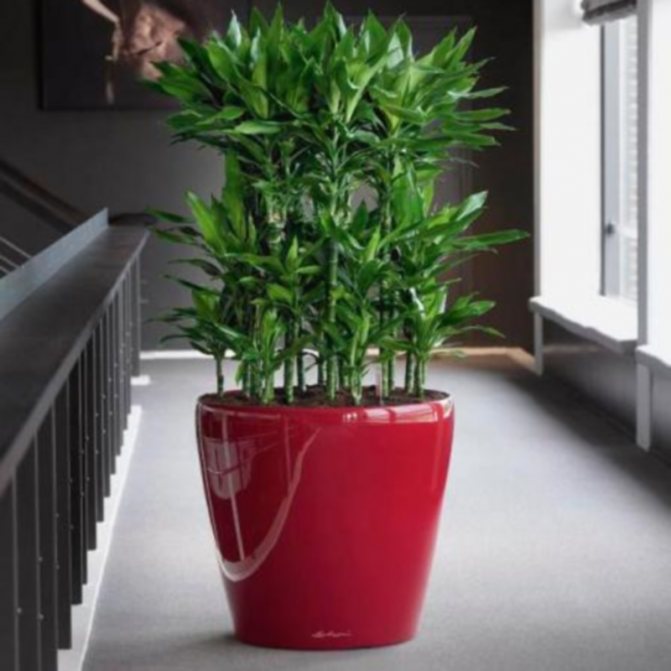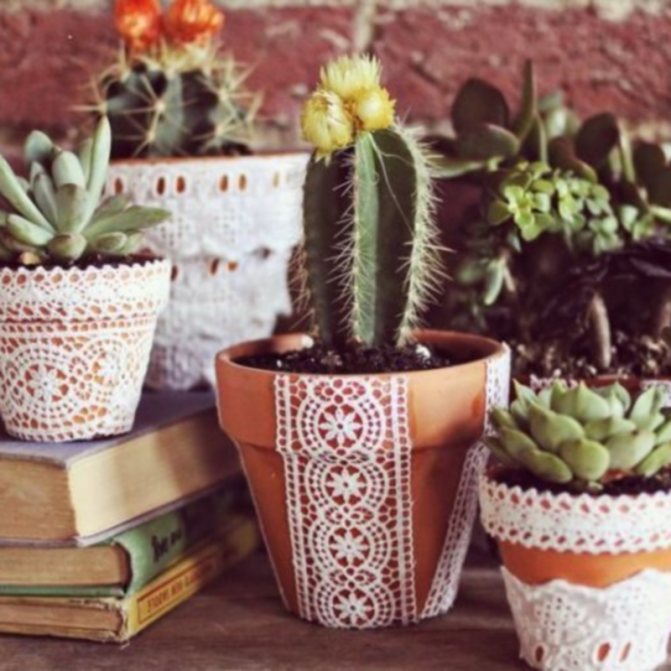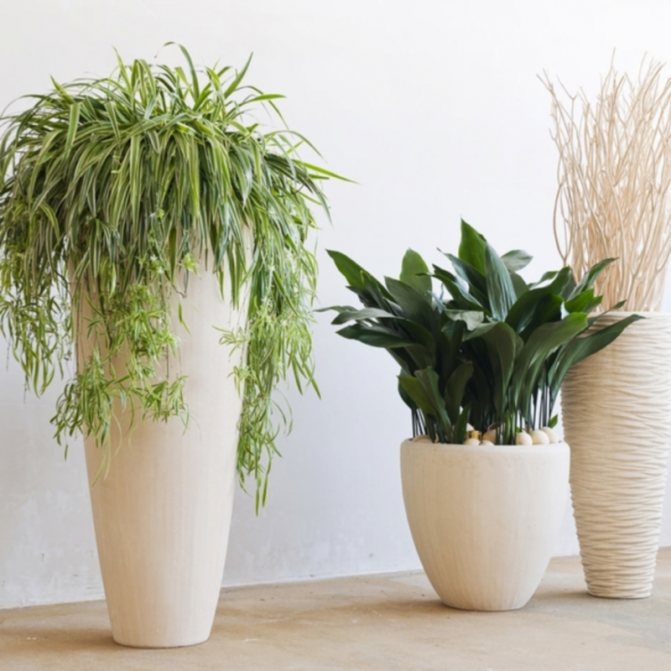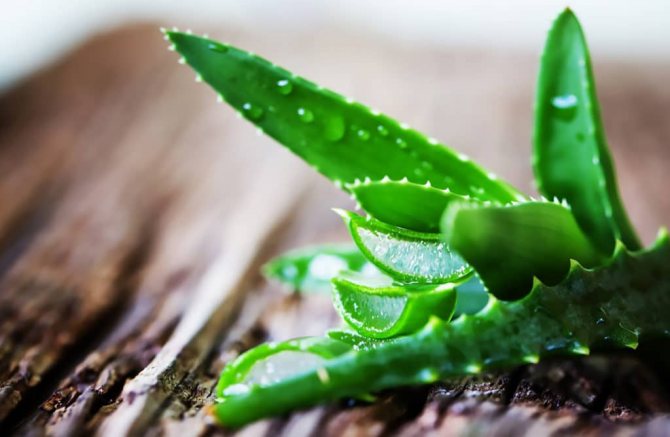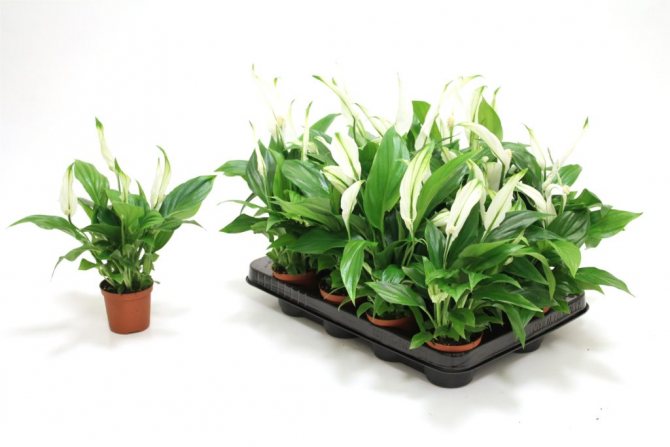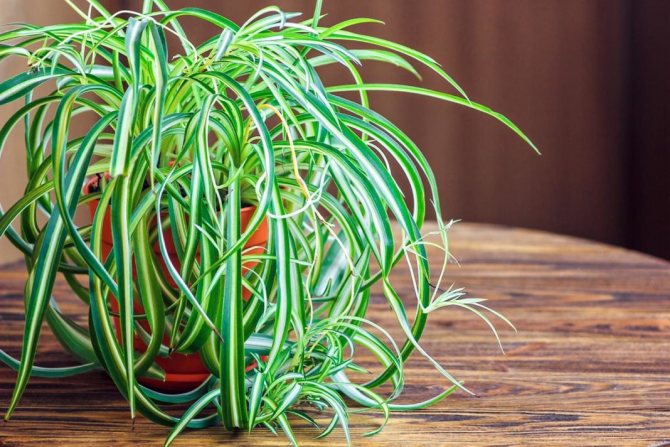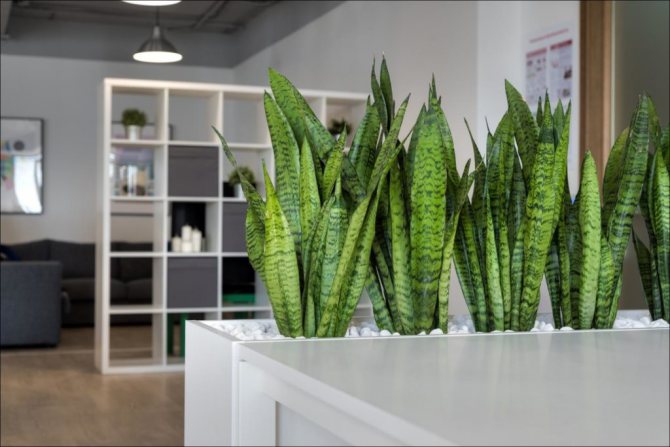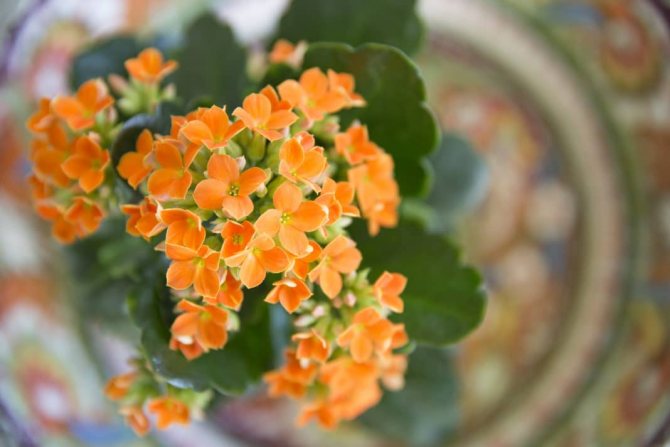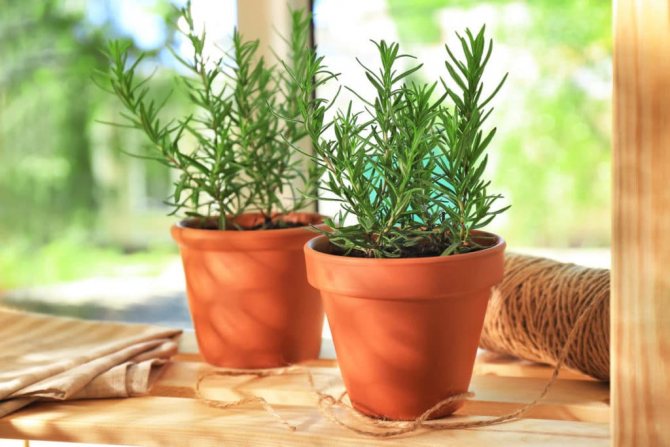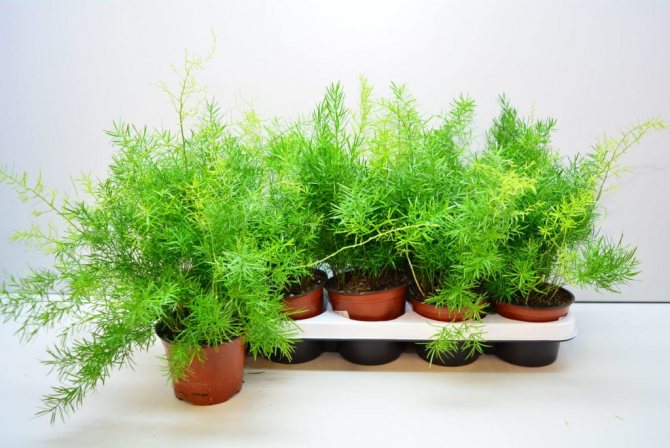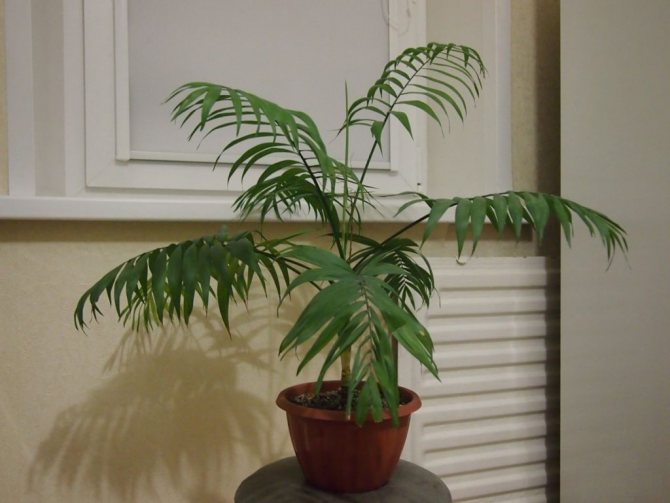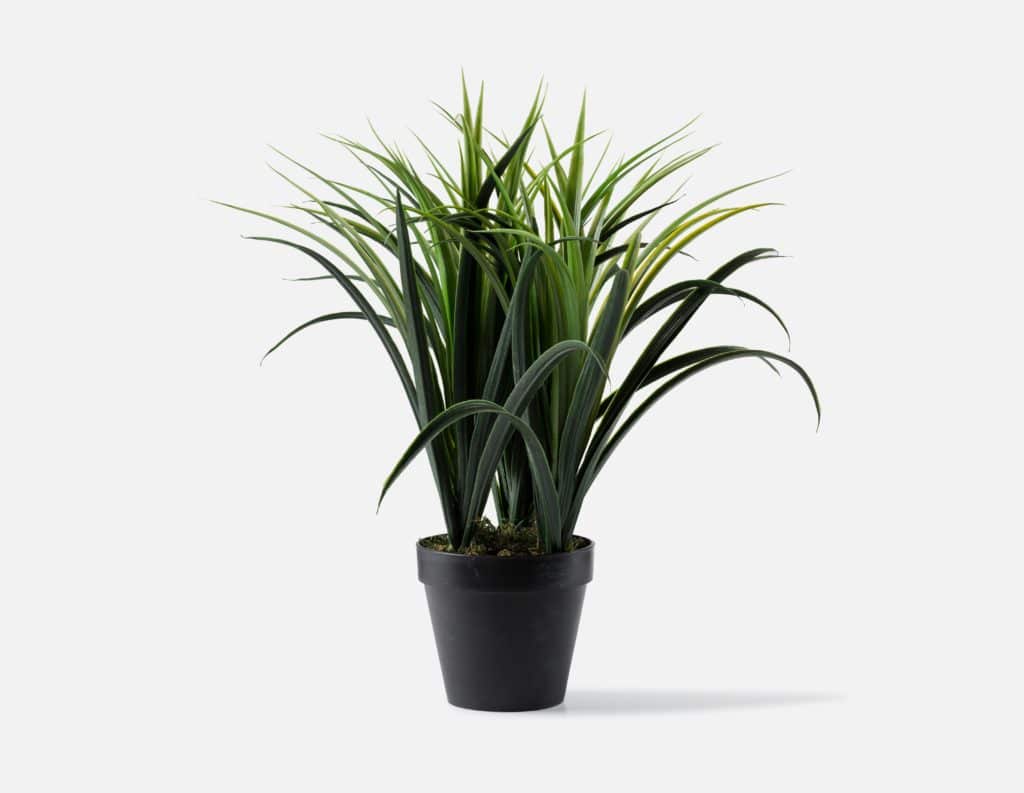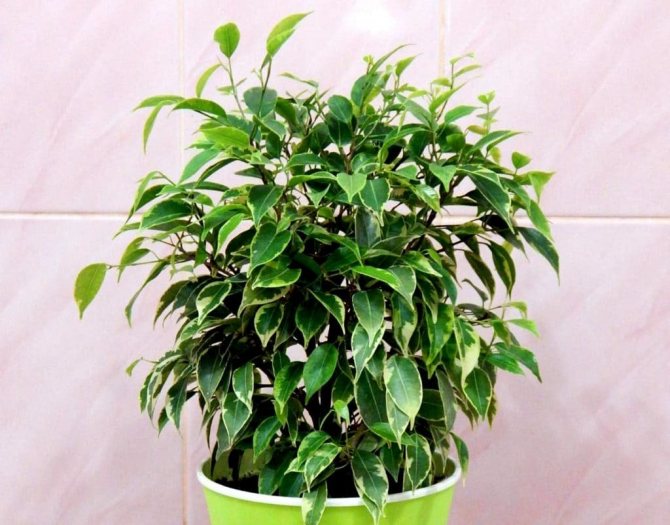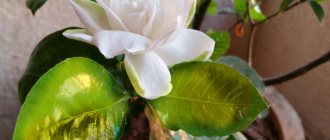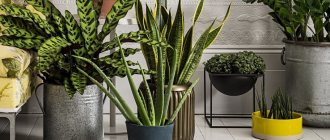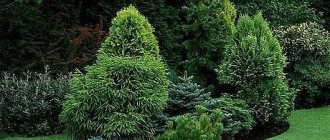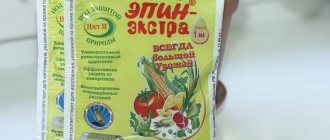The bedroom is a special room in the house. First of all, this is a room intended only for the owners: there is no place for outsiders. In addition, you have to spend a significant part of the day in the bedroom - 6-8 hours of sleep. And finally, this room is designed to be an oasis of peace and tranquility, heavy experiences and bitter feelings should be left behind its doorstep. To create the atmosphere necessary for a rest room, it is customary to use soft colors, furniture and interior items of rounded shapes, and dim light.
Indoor plants in the interior of the bedroom
And the choice of plants for the bedroom should be approached especially carefully and responsibly. During sleep, a person breathes deeper than usual, which means that the air in the bedroom should be especially clean. As you know, plants enrich the air with oxygen, but in addition, many of them have bactericidal properties and the ability to increase air humidity. They are more suitable for the bedroom than others.
As a rule, plants that purify the air, odorless or with a delicate, subtle soothing aroma, dull, but beautiful, have a positive effect on health and on the emotional state, charge the atmosphere of the room with the energy of love and trust.
Why are home flowers useful?
The benefits of indoor plants are assessed in different ways. Some flowers have healing properties and can be part of a home first aid kit. For example, the leaves of Kalanchoe and aloe have beneficial properties and are used in folk medicine. Other flowers purify the air and release beneficial phytocydes. And there are such plants (thuja, cypress, for example) that emit a huge amount of volatile essential oils and phytocind, turning the air in the apartment into a truly healing one. Blooming houseplants are also of great benefit for their aesthetic appearance: they soothe, pacify and tune in a positive way, thereby having a beneficial effect on the nervous system.
Flowers for the bedroom: which are possible and which are not, recommendations for feng shui

Flowers for the bedroom can serve as an excellent addition and decoration, fill the atmosphere of unique warmth and comfort. Before choosing which plants to place in your room, it is important to know exactly how they affect human health and energy. Not every flower is suitable for placement in the bedroom and will have a beneficial effect. What flowers can be kept in the bedroom, and which ones it is better to refuse, let us consider in more detail.
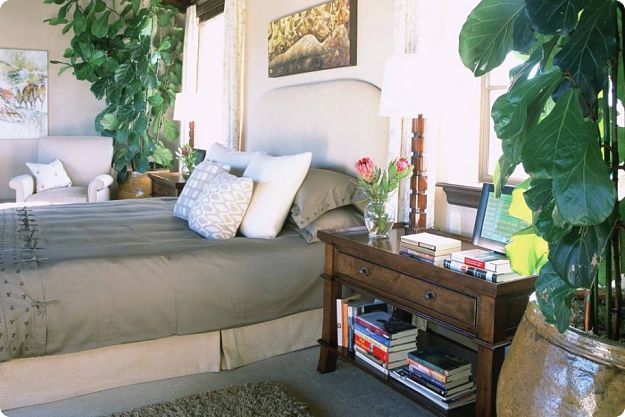

The most useful indoor plants
|
|
|
|
| Geranium | Dracaena | Cactus | Chlorophytum |
Geranium - the flower, due to its unpretentiousness, medicinal properties and long beautiful flowering, continues to be very popular today. Geranium is capable of absorbing carbon dioxide and releasing oxygen. Geraniol is a substance secreted by a plant that clears the air from various bacteria and viruses. Geranium saturates the surrounding atmosphere with anti-stress substances.
Dracaena florists recommend starting in apartments where linoleum is used as flooring. After a certain period of operation, linoleum releases benzene, which dracaena can neutralize in large quantities. It also releases phytocysts that have antimicrobial effects.Dracaena is an unpretentious plant, therefore it can take root in almost any conditions.
Cactus - Cacti with long needles are considered especially useful. They not only purify the air from pathogenic microbes, but also from electromagnetic radiation, reducing air ionization.
Chlorophytum - one of the most useful indoor plants in terms of air purification. It is unpretentious to care for and multiplies easily (propagation by layering). The flower cleans the air in the room not only from toxins released by synthetic materials, but also from pathogenic microbes. Chlorophytum is ideal for the kitchen, where it can purify the air from carbon monoxide released during combustion. Many growers recommend adding activated carbon to the substrate to improve the beneficial properties of the flower.
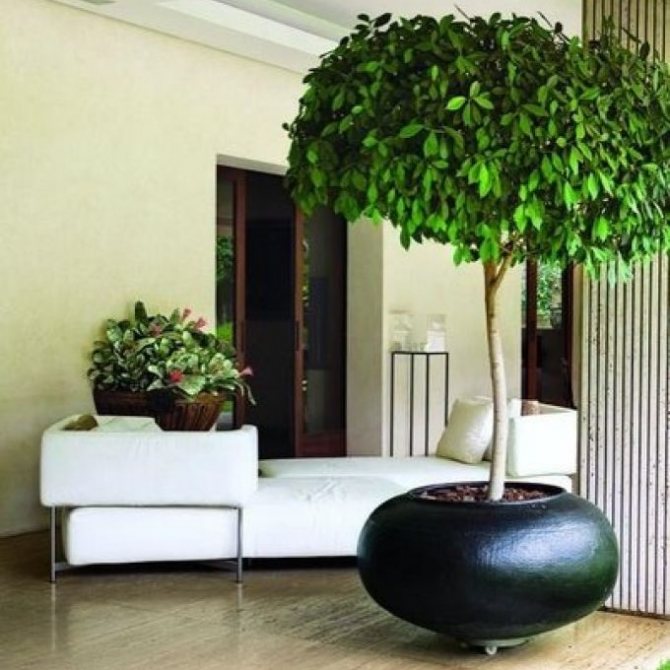

Ficus
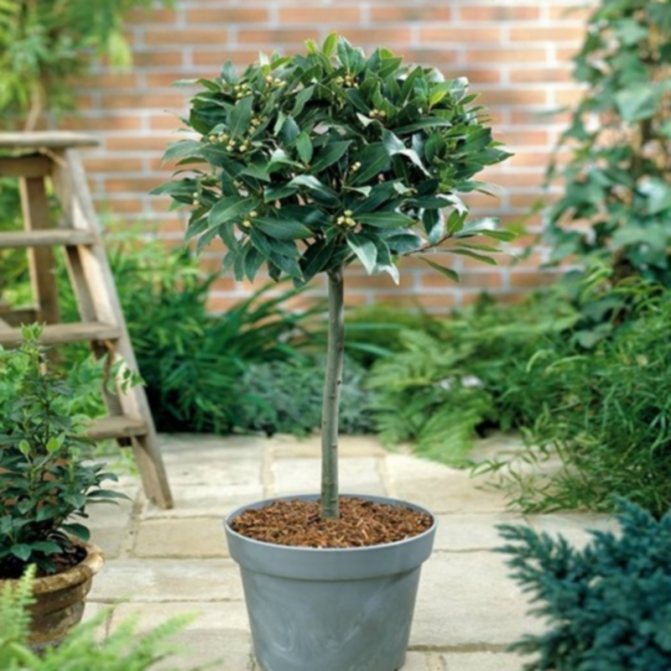

Laurel
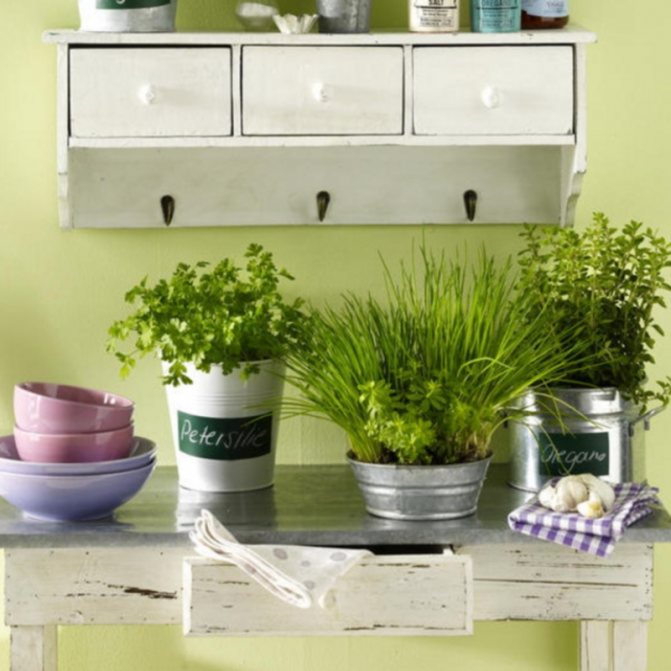

Spices
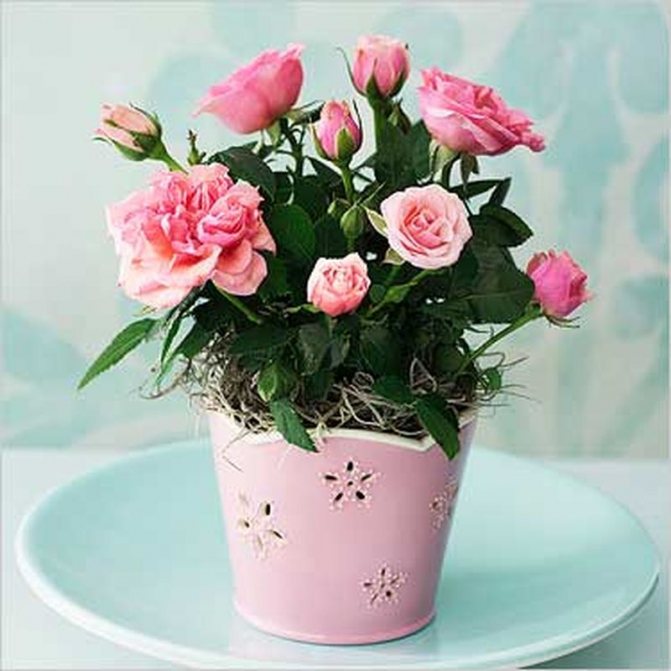

rose flower
Ficus - one of the most popular and useful plants. However, it is worth considering the fact that ficus gives off a lot of oxygen during the day and absorbs it at night. Therefore, it should not be put in the bedroom. The kitchen and living room are the best places to place a flower. Ficus releases a large amount of phytocydes that destroy harmful bacteria.
Laurel - an evergreen light-loving plant with bactericidal properties. It is especially recommended to keep people with diseases of the cardiovascular system and gastrointestinal tract in their apartment.
Spices - basil, oregano, dill, parsley, mint, tarragon. And the list goes on. With their help, you can easily green the interior of the kitchen healthy and tasty.
rose flower - cleans the air, fills with a wonderful aroma, increases humidity. The substances secreted by the rose bush tone up, relieve nervous irritation and fatigue.
Flowers such as ivy, spathiphyllum, rosemary, jasmine, pelargonium, aloe, cypress, passionflower, palm are also useful. For example, cyclamen, cyperus, ferns and violet varieties help maintain optimal indoor humidity.
The most popular flowers for the bedroom
Here are 10 types of indoor flowers that have a beneficial effect on the human body and are most often chosen for the bedroom:
Chlorophytum
Removes hazardous chemicals including formaldehyde, destroys harmful electromagnetic radiation, humidifies the air, kills germs and other microorganisms.
Spathiphyllum
Produces oxygen regardless of the time of day. Cleans the air from harmful substances entering the room through an open window... Spathiphyllum is able to humidify the air, neutralizes allergens. It has a positive effect on the human psyche, ensures a calm and healthy sleep.
Produces oxygen at night. Removes the electrification in the room. Eliminates toxic substances such as formaldehyde... Aloe is a medicinal agent. The washed leaves can be applied to the wound. Aloe juice is used for colds and headaches.
Kalanchoe
Releases oxygen at night, is able to calm. Kalanchoe helps to get out of depression.
Begonia
Removes germs and harmful substances. Begonia scent helps relieve depression... It will be useful for people of age, as well as for diseases.
Geranium (pelargonium)
Has disinfecting properties, removes volatile chemicals and carbon monoxide from the air. Geranium releases negative ions that have a positive effect on the body. Eliminates headaches, normalizes blood pressure, strengthens the immune system... Relieves nervous tension. Helps with insomnia. Scares away insects.
Sansevieria or mother-in-law's language
Always gives off oxygen. Stabilizes blood pressure, improves immunity, relieves headaches, helps eliminate breathing problems... Sansevieria neutralizes formaldehyde, trichlorethylene and benzene.
Possesses bactericidal properties.Removes diphtheria and tuberculosis bacilli, streptococci and staphylococci. Its scent has a positive effect on the psyche., relieves fatigue and tension, improves sleep.
Lavender
Has a pleasant aroma. Reduces anxiety, slows heart rate, promotes restful sleep, especially in infants.
Jasmine
Small white flowers exude a sweet scent that has a relaxing effect... Jasmine provides restful sleep.
Harmful indoor plants
All life on the planet can be not only useful, but also very harmful. Not many people think about this when purchasing another flower. It turns out that many flowers can be hazardous to health, cause allergies, headaches, irregular heart rhythms, and are poisonous indoor plants.
Most green pets have their origins in African and Asian exotic plants. Having fallen into the hands of European botanists and breeders, over the years of mutations, plants have adapted to home conditions, changed color and shape, learned to develop and bloom in our latitudes. And, despite this, they still did not cease to pose a danger to others.
Selection of plants taking into account the characteristics of the room
Plants are also selected based on the technical parameters of the room:
- area and volume;
- intensity and nature of illumination;
- air exchange indicators.
Room size
Spacious bedrooms with high ceilings place large plants in large pots in shelves or in floor pots. Lush, developed crown will not clutter up the bedroom. Climbing plants on light partitions will also be appropriate. A good placement option is opposite the growth mirror on the wall or in the cabinet door.
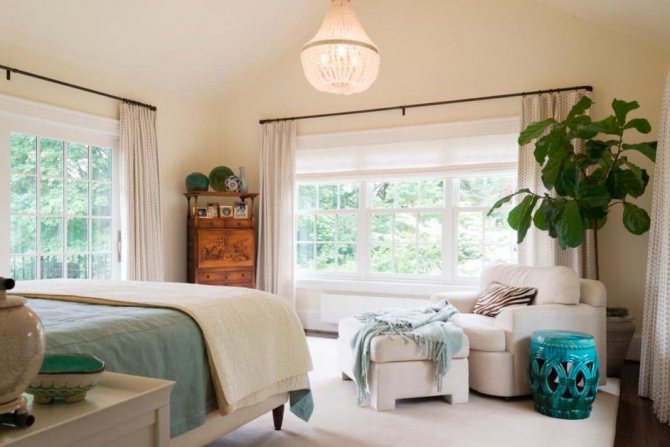

Plants for the bedroom are primarily chosen based on the size of the room.
For small bedrooms, including attic ones with a sloped ceiling, it is better to stay on small landings in hanging pots. The surface of the dressing table will also be a good place for placement. Plants should not interfere with residents moving around the room and doing household chores.
Illumination
If the windows face north, it is better to opt for shade-tolerant or shade-loving plants. Even a small amount of insolation will be enough for them to fully develop.
South-facing windows require the use of light-loving green spaces. They will make full use of sunlight and delight the owner with luscious greenery and beautiful flowers.
The west and east directions allow you to choose any flower. It is only important to ensure that in the summer, in the heat, they are closed from direct sunlight with light curtains.
Plants that cause allergies
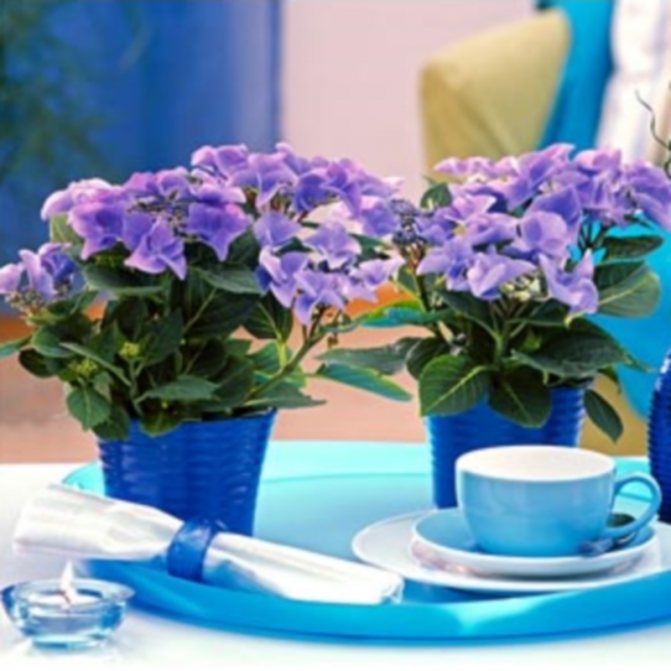

Hydrangea
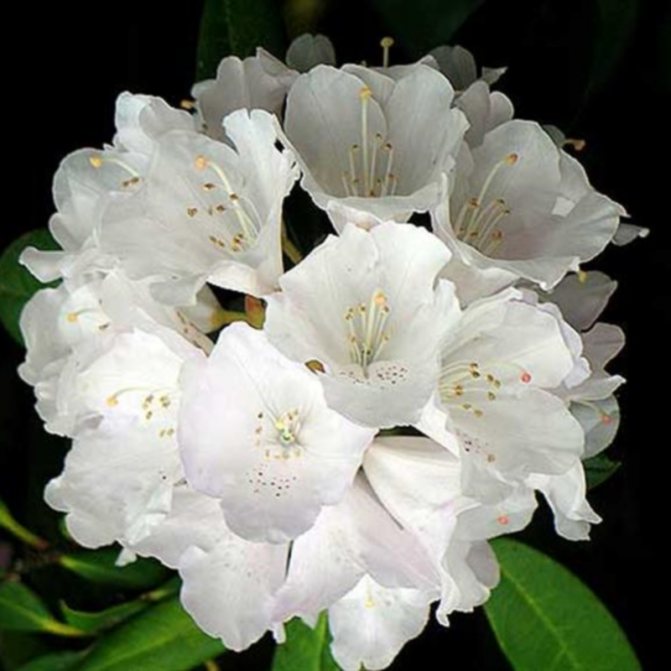

Calmia
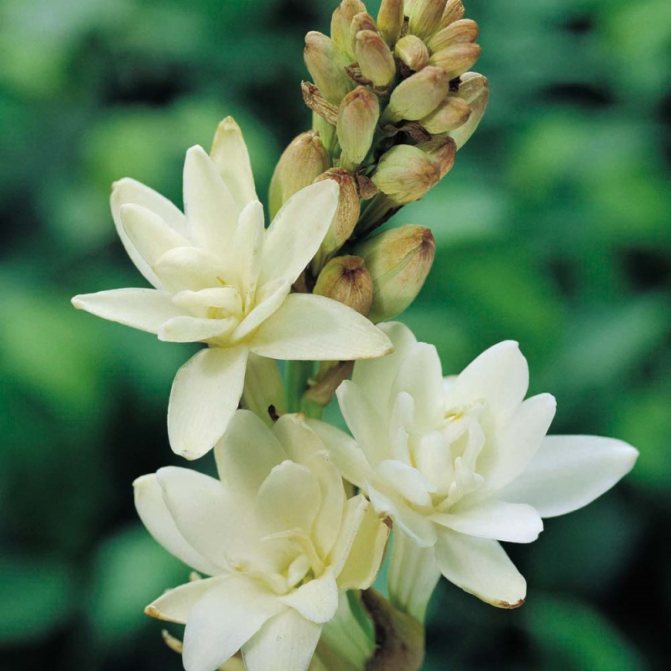

Tuberose
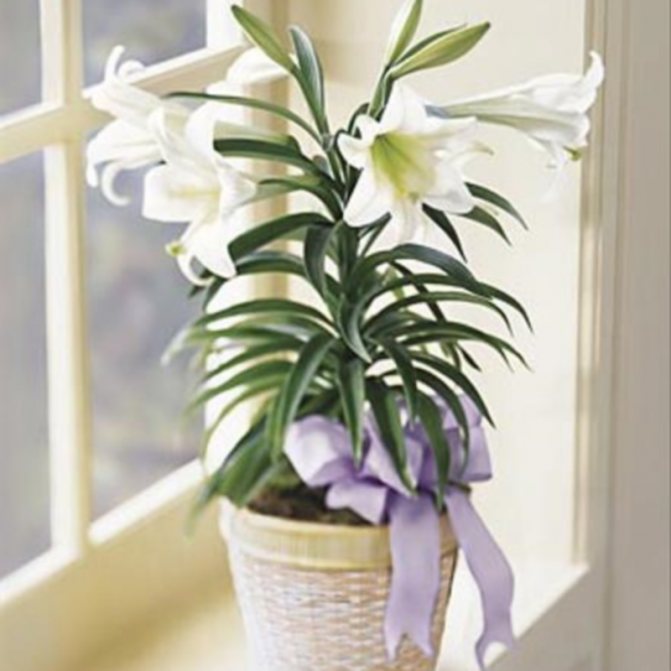

Lily
Many house flowers can trigger allergy attacks. It's one thing to deal with hay fever once a flowering season (allergic rhinoconjunctivitis), but it's another thing, I don't know to arrange it for myself all year round. Therefore, it will not be superfluous to donate blood for allergens before starting floriculture. So, flowers and pollen of rhododendron can cause severe allergies even in those people who have never suffered from it before. Also, allergic manifestations can be caused by flowers such as hydrangea and broad-leaved squid.
Any flower can cause individual pathological manifestations, even, at first glance, the most harmless one.
Some plants have a very strong aroma, causing headaches and even chronic insomnia. For example, orchids, ferns and lilies should be kept away from their sleeping area. In addition to their strong aroma, they emit a lot of carbon dioxide at night and absorb oxygen. Fragrant tuberose should not be kept by people suffering from hypertension and heart disease.
The reasons for the manifestation of allergy symptoms can lie not only in the flower, but also in the soil. Various fungi often appear in the potting mix, causing allergic cough, rhinitis and conjunctivitis.
When choosing plants for the interior of your apartment, you should be guided by common sense, and learn a little more information about those flowers that you are going to grow in your home. It is not always worth neglecting insidious plants; compliance with certain safety rules will allow you to admire their decorative advantages.
Basic requirements for plants for the bedroom
When a person is asleep, his breathing is deepest. Therefore, the atmosphere that green spaces form must be clean. Physicians and biologists have formulated a number of criteria based on which indoor plants for the bedroom are chosen.
- absorption of carbon dioxide;
- oxygen evolution;
- moisturizing;
- dust collection;
- absorption of unwanted impurities from the air;
- correction of the energy background of the bedroom.
As for the aesthetic qualities of green spaces, then, based on the purpose of the bedroom as a place of relaxation and restoration of vital energy, plants should have:
- subtle, soothing scent;
- calm, not flashy colors.
Such flowers will be able to calm the nervous system tired and excited during the day, contributing to good rest.
It is better to choose plants that are unpretentious, easily tolerant of regular ventilation, and do not require a special microclimate or long-term special care. The bedroom should be comfortable, first of all, for a person.
If those living in the room suffer from allergic diseases, then green spaces should not cause allergies.
Potted soil and plant parts should not become a habitat for unwanted insects.
Tips for placing flowers in the bedroom in Feng Shui
Plants for the bedroom can be chosen based on Feng Shui treatises. For those who love live plants, it is recommended to use only certain species and in strict accordance with a number of conditions. It is customary to stir no more than four plants.
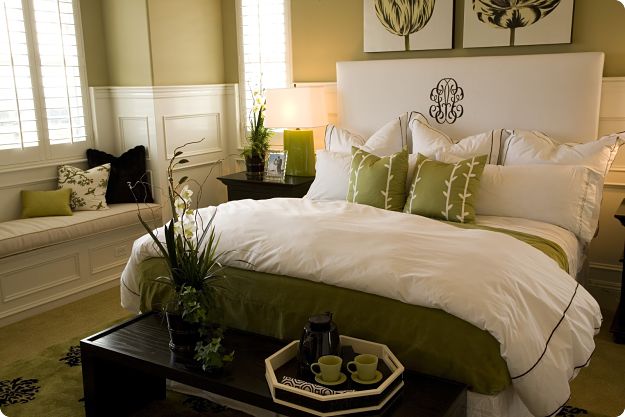

For example, bamboo shoots planted by a pair in one pot will help bring harmony back to the family.
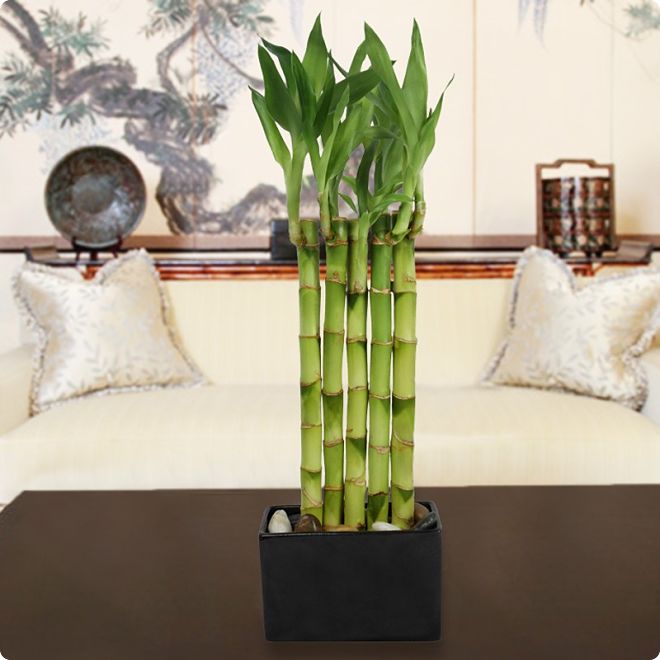

A lonely person is advised to plant flowering plants and place them in the love sector.
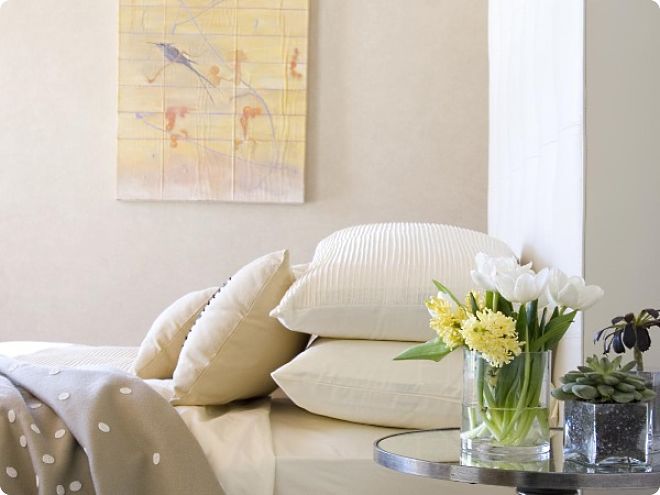

The teaching also gives recommendations on what kind of flowers you can put in the bedroom.
According to the treatises, the orchid brings tenderness and understanding to married life. However, it is recommended to place it in the workspace.
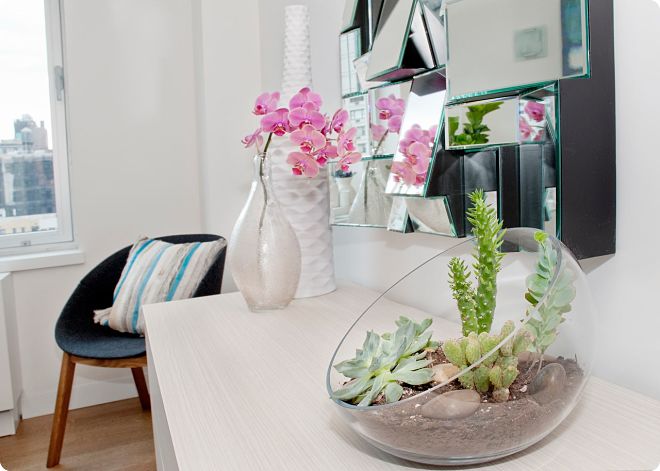

Placing peonies in the bedroom is advised for success in love and financial sphere. They will help you find love and keep the relationship on fire.
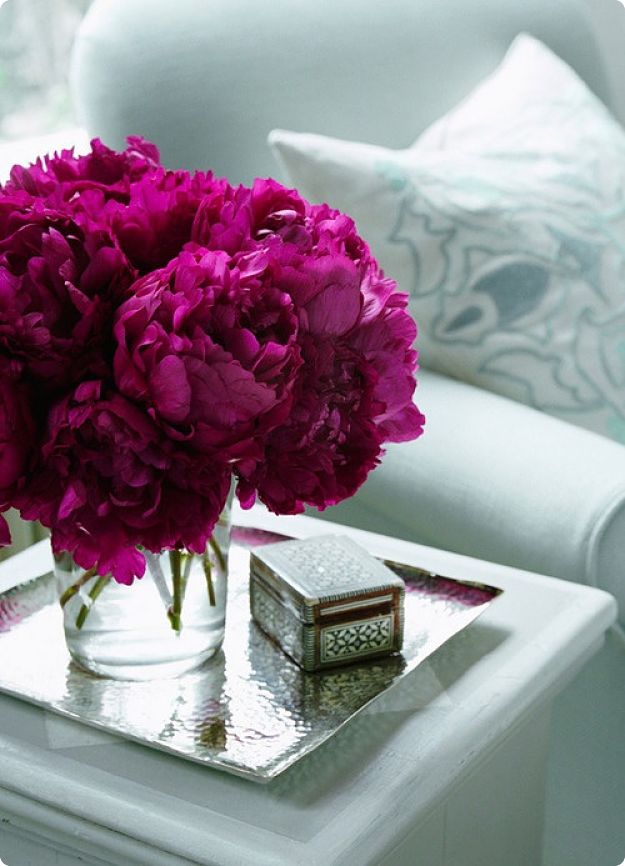

The use of artificial flowers is undesirable. They have a bad effect on vital energy and can lead to fading feelings.
When choosing flowers for your bedroom, pay attention to their effect on the body, psychological state and external qualities. It is also important that the plants fit harmoniously into the stylistic solutions of your room.
Size and location
Florist designers allow the presence of large plants in the bedroom: dracaena, elephant yucca, monstera, etc., since the room is not intended for outdoor activities and flower pots will not interfere.
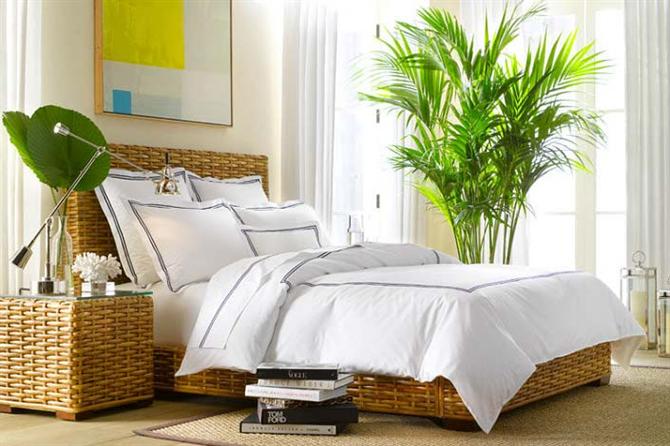

One large plant or several small ones - the choice is yours
Naturally, potted flowers should not block the passage to the bed and, preferably, not stand close to it. The fact is that often in stores, plants are treated with chemicals, in particular fungicides, in order to prevent fungal diseases, the appearance of mold or mites, which clearly will not benefit the person sleeping next to him.
You can make a composition from several plants with your own hands. It will look especially impressive if you place it in front of a mirror and light it gently.
In very small bedrooms there is also a place for one or two beautiful pots: suspended on the ceiling or wall, or displayed on the dressing table, they will add sophistication and completeness to the interior. (See also the article Color wallpaper for the bedroom: which one to choose.)
Indoor plants do not have to grow in the ground - cut bouquets of roses, peonies and even ordinary field daisies on the windowsill will delight your eyes when you wake up for several days.
What do the Chinese say
In China, as in Russia, symbolism was attributed to flowers. According to the doctrine of the harmonious arrangement of things in space - Feng Shui, indoor plants are not divided into good and bad: each must be put in its place and it will be beneficial.


Bouquets of cut flowers are welcome in the feng shui bedroom
Indoor flowers for a Feng Shui bedroom, decorated according to all the rules, are not needed. However, as elsewhere, there are exceptions. (See also the article Feng Shui bedroom color: how to arrange it better.)
The instructions for creating a harmonious vacation spot read:
- There should be no green spaces near the bed;
- The path to the bedroom is canceled for lush blooming plants - they suppress the female life energy (Qi);
- Flowers with sharp leaves and thorns should also not be placed in the sleeping and resting room;
- And if, nevertheless, there are flowers in the bedroom, then let them be plants that stretch up.
According to Chinese wisdom, all indoor plants are endowed with a certain energy and affect certain areas of their owner's life:
- Tradescantia is a flower-mirror that reflects the internal energy of the house. If there is discord in the family, the plant turns yellow and dies;
- Ficus - suppresses aggression and neutralizes anxiety;
- Fern - cleans the home of negative energy;
- Aloe or balsam - promotes reconciliation among relatives or spouses;
- The money tree (fat woman) is one of the most famous symbols of material well-being;
- Orchid is a muse for creative people, it also helps to overcome depression.
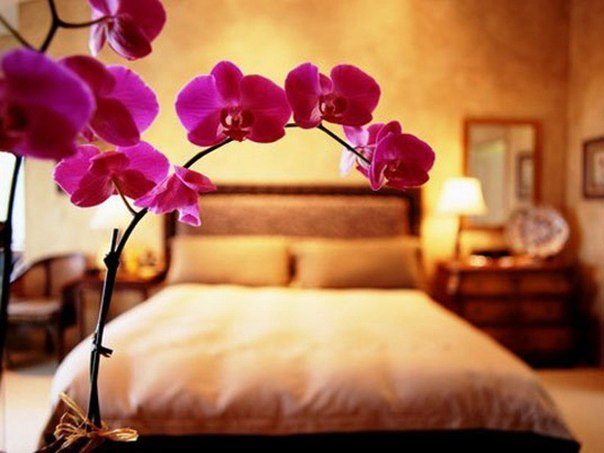

An exquisite orchid will inspire a creative person
List of poisonous plants
This group of plants includes those species that should not be kept at home, especially in the presence of animals or children due to extremely dangerous properties. A child, like a pet, is capable of poisoning with similar flowers or getting burns if handled carelessly.
If there are no children and animals in the house, then take precautions when caring for such plants. Be sure to wear gloves when handling these colors and rinse tools thoroughly. Do not under any circumstances cut these flowers with a knife intended for food in your kitchen.
What flowers should not be kept in the bedroom
You cannot keep flowers in the bedroom that negatively affect your health and nervous state. Avoid strong-smelling plants. Their scent can be stressful and contribute to headaches.
Orchid
The orchid in the bedroom is not at all as harmless as it might seem. Despite the visual appeal, the presence of these flowers in the bedroom causes anxiety, has a bad effect on sleep and emotional state.
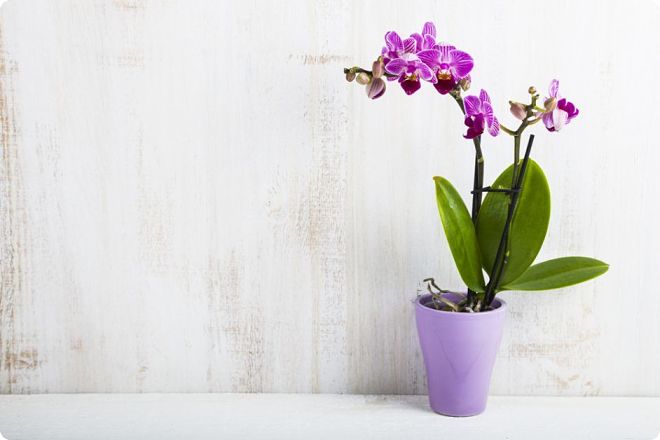

Ficus
Ficus in the bedroom causes quite conflicting moods. According to ancient prejudices, this flower was believed to cause discord in the house. Others consider him a family talisman.
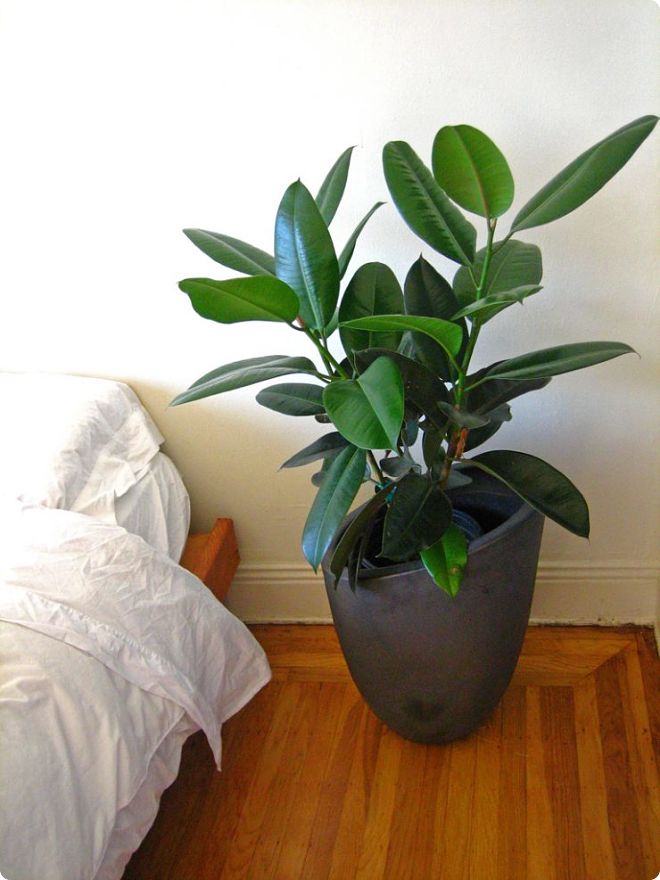

Ficus is a reliable oxygen filter. Certain medicinal properties are inherent in it.
What plants to choose for the bedroom and their energy
When choosing colors for a bedroom with a favorable energy, it is important to listen to intuition on the principle of "like it or not like it." The TOP-10 of the best plants for a bedroom includes the following types:
Begonia
This auspicious flower has a strong energy that, like vortex currents, moves outward from the root.If you install begonia among other flowers, for example, on a windowsill, then the energy of all plants will increase.
The positive effects of begonias in the bedroom:
- sedative effect, stress relief;
- allows you to make the right decisions;
- gives joy and renews feelings;
- encourages purposefulness;
- inspires change and routine.
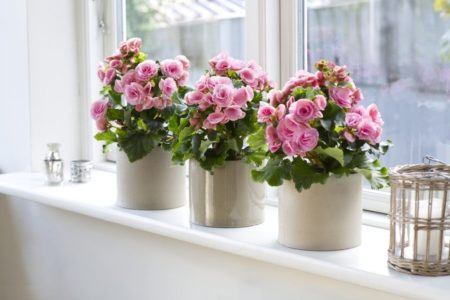

The energy of the flower helps the owner to cope with diseases, life difficulties and financial problems.
Gardenia
It has snow-white inflorescences with a pleasant aroma. It is noteworthy that gardenia is chosen because of its scent, which has a sedative effect, which is comparable in strength to the tranquilizer Valium.
Scientists from Germany have conducted a number of studies, which have revealed that gardenia triggers a natural neurotransmitter of the central nervous system, which has a beneficial effect when changing the rest regimen.
The energy from the flower spreads evenly, settling in a cloud. Such a plant in the bedroom gives strength, a feeling of peace is generated. Recommended for people who have suffered grief, are depressed or weakened after illness or surgery. Energy regains strength after a hard day at work.
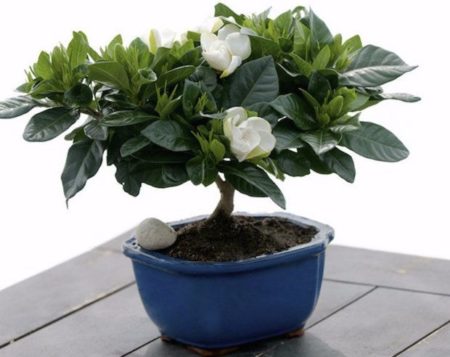

Lemon
These are plants of the constellation Sagittarius, so it will be beneficial for people born from November 23 to December 21. According to legend, Jupiter awarded the plant with useful qualities, and Venus awarded the beautiful appearance. The friendship of these planets stimulates a person to show nobility. Most often it expresses itself in the spiritual field.
Homemade lemon is like a cloud in energy, toning up a person and helping to overcome anxiety. Also, lemon encourages you to actively manifest yourself in the social sphere and will help get rid of everyday boredom.
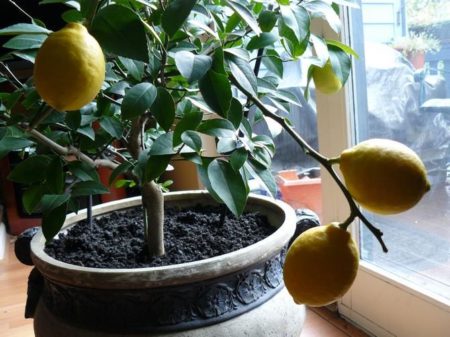

Hyacinth
Keeping this flower in the house is useful for Libra under the auspices of Venus. There is a sign that the one who puts the hyacinth in the bedroom will feel a surge of cheerfulness and desire in creative energy. The plant creates an atmosphere of friendliness, clears the thoughts, feelings and intentions of the owner from negativity. Hyacinth will also have a beneficial effect near the matrimonial bed.
In terms of energy, the flower is like the wind, charging people around with love for life and vigor. Often, the plant catalyzes creative discoveries, giving the master of the bedroom decisiveness. Also, the flower creates harmony in the room, bringing sophistication to it.
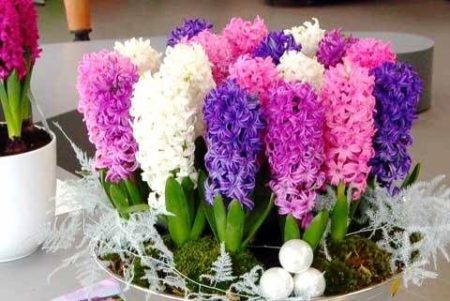

Hibiscus
Hibiscus is also popularly known as the Chinese rose. It is recommended to hang this flower in the bedroom of those born under the constellation Leo. Energy is directed upward, spreading throughout the room. The plant does not allow the owner to betray laziness, awakening liveliness and movement. Hibiscus is a catalyst for fulfilling good deeds.
If one of the spouses is Leo according to the zodiac sign, then the Chinese rose will attract:
- health;
- good news;
- strengthening of love.
It is believed that the flower is useful for people suffering from cardiovascular diseases. Red inflorescences to add brightness and passion to the relationship, yellow ones - for openness and friendship.
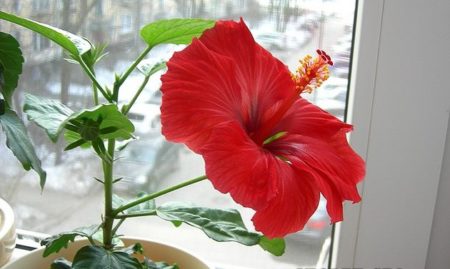

Cyclamen
It is customary to put this plant in the Taurus bedroom. The constellation favors those colors that are beneficial. Due to the fact that Venus rules the zodiac sign - the plant is beautiful and useful, because purifies oxygen in the room.
Cyclamen is a combination of the influence of solar and lunar energy, as well as Mercury. The sun helps managers, and the moon for the internal order. The symbiosis of the two luminaries develops adaptation and self-discipline in the owner of the sleeping bag. Cyclamen has a high value for those who depend on outside opinions. Also suitable for women with frequent mood changes.
The plant creates a supportive atmosphere, reveals trusting relationships and gives a sense of ease.Therefore, the flower placed in the bedroom encourages loved ones to reveal hidden feelings and to relate to a partner with confidence. At the same time, guests in such a house feel comfort and goodwill.
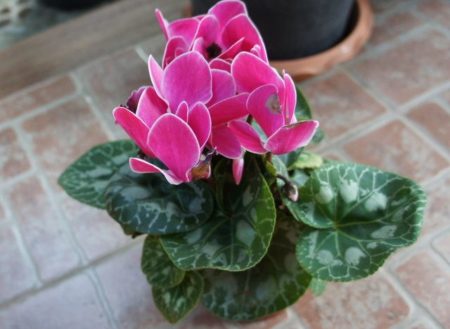

Dianella
Dianella treats plants for the bedroom - favorable. This is due to bright leaves and juicy flowering. The flower inspires creative people. Therefore, the people gave him such names as "blue fairy", "lily of Diana", etc.
Dianella caerulea is an indoor variety, therefore it is inferior to its wild counterparts. Nevertheless, flowering looks like a miracle, and the elegance of forms with an unusual overflow of blue - personifies artists and people prone to daydreaming. From practical properties - high-quality air purification in the bedroom.
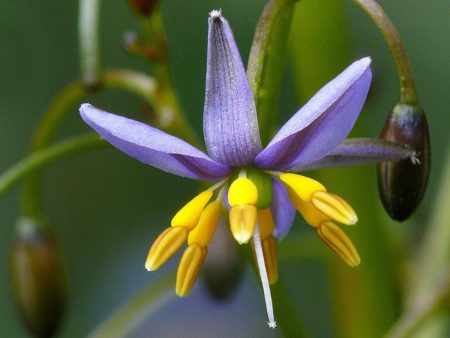

Spathiphyllum
The indoor flower is designed to neutralize harmful compounds in the air - methyl alcohol, benzene, ammonia, trichlorethylene and others. Also, the plant, placed in the bedroom, humidifies the air up to 5%, which greatly facilitates breathing during sleep.
It is noteworthy that the moisture emanating from Spathiphyllum neutralizes pathogenic microorganisms that cause allergic reactions and bronchial asthma. It is recommended to put the plant closer to the bed during the heating season and keep at least two pieces.
The second name of Spathiphyllum is "Women's happiness", so the flower shields the female energy, normalizes it and attracts well-being to the house.
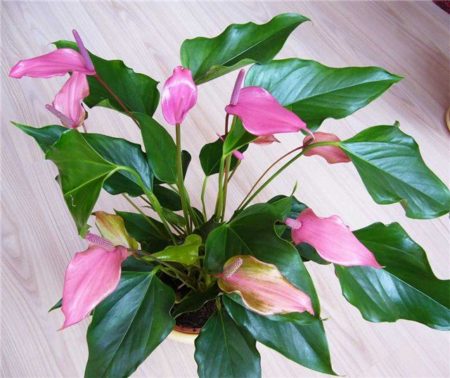

Anthurium
The main positive characteristic of Anthurium is the neutralization of depressive conditions, incl. and from chronic. Therefore, this flower is so prized at the modern pace of life, when depression has become the scourge of the 21st century. The plant has a calming effect on the nervous system of the sleeping bag owner, promotes a positive attitude and reduces concentration on negative thoughts.
In addition, Anthurium has properties such as:
- harmonization of the state of mind;
- gives a sense of security and peace;
- clears the mind and mind.
It also stimulates intuition.
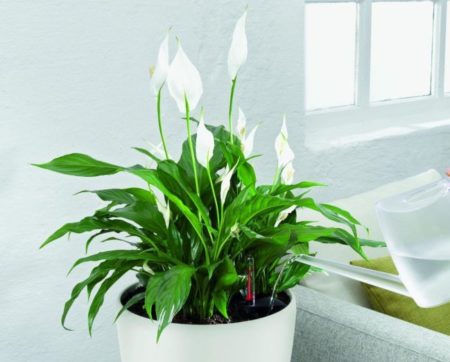

Aloe
The most unpretentious flower from the list. Since ancient times it has been popular with housewives. It is installed both in the bedroom to purify oxygen from formaldehyde, and in the kitchen to attract good luck.
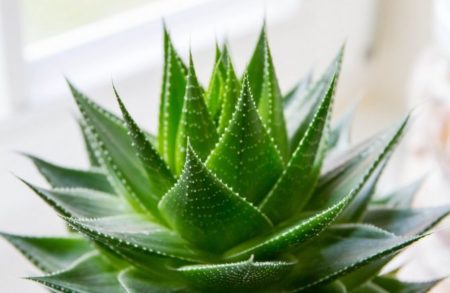

Folk signs: what is possible, what is not?
To trust folk omens or not is a personal matter for everyone. At the same time, it is worth remembering that most often signs arise on the basis of long-term observations of ancestors. Consider what the appearance of some indoor plants in the house entails:
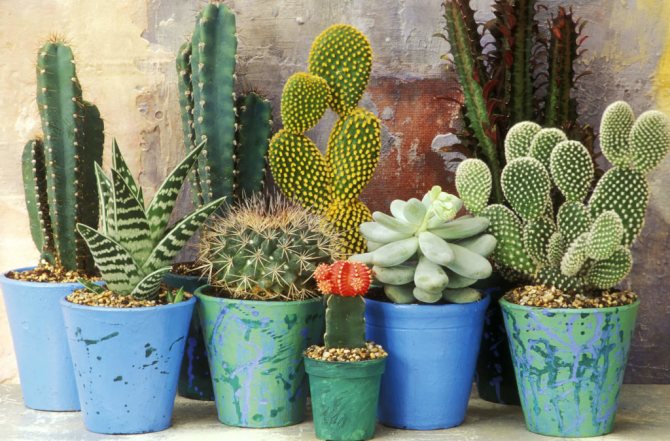

Cacti are unfavorable plants for the home. It is believed that the presence of a cactus in the apartment turns the husband into a person suffering from alcoholism. There is a second sign, which says that in a house where there is a cactus, a girl will not marry happily or will not meet a chosen one at all. Also, cactus has a bad effect on relationships between family members.- Ferns take vitality from a person, being an energy vampire. In a house with a fern, a person will feel constantly tired, inactive, sleepy.
- Ivy and climbing plants, according to folk signs, scare men away. In a house where there are such plants, a man will constantly strive to go somewhere. In addition, ivy negatively affects the state of mind, depriving a person of optimism and balance. It is best to keep these plants outside the house. So, ivy will act as a protector.
- Dieffenbachia is dangerous for its poisonous properties, and also takes health away from the household.
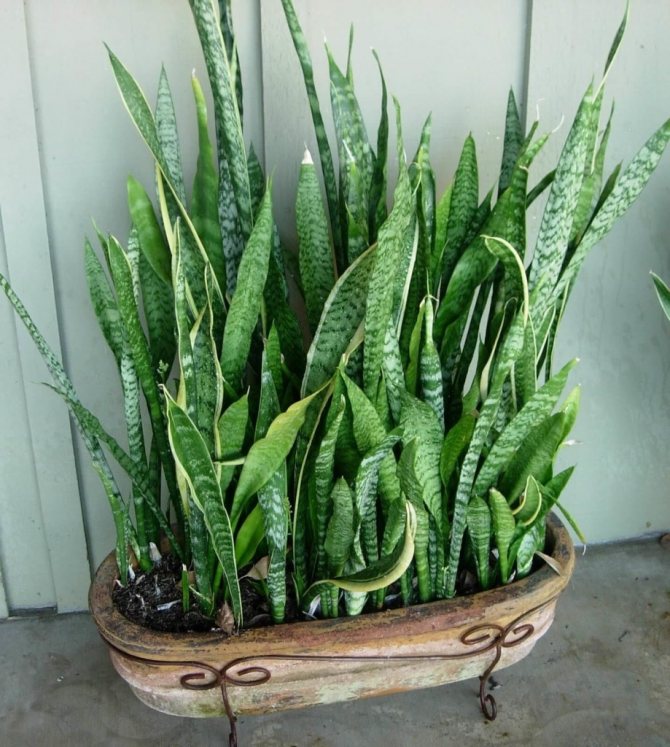

Mother-in-law's tongue is a plant that has practically no stem, with elongated longitudinal leaves with a bright green color. It is believed that the presence of such a flower in the house leads to loneliness and the inability of the girl to get married. The plant has a negative effect on feminine strength, so it is dangerous to keep it in the bedroom. The flower, as it were, "drives" men out of the house.- Sansevieria is a curious plant that looks like the tail of a fish. For this reason, it is also nicknamed the "pike tail". The leaves of the flower, painted green, have such a bizarre shape. The plant blooms and has a pleasant aroma. But, according to the signs, it negatively affects family and personal life. The presence of this flower in the house leads to loneliness.
- The palm tree often decorates the interiors of many rooms, but it is better not to put such a flower at home. The palm tree contributes to the appearance of grief in the family, if it was presented to you. Save this plant for office spaces or other locations.
- Ficus can cause allergies, but in addition, it is believed that the flower negatively affects the appearance of children in the house. If you want a child, then this plant is not worth purchasing. There has been a long debate about ficus. There is a directly opposite opinion on this plant. It says that ficus solves the problem of infertility and contributes to family well-being.


